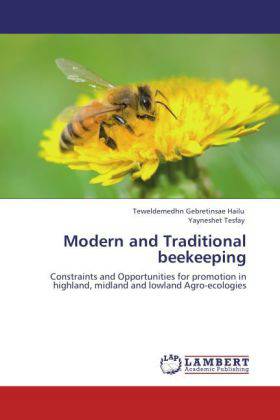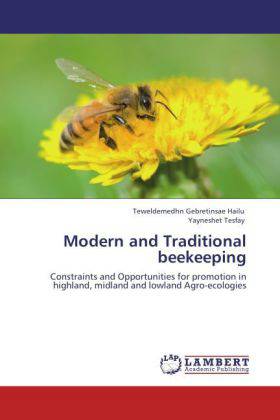
Bedankt voor het vertrouwen het afgelopen jaar! Om jou te bedanken bieden we GRATIS verzending (in België) aan op alles gedurende de hele maand januari.
- Afhalen na 1 uur in een winkel met voorraad
- In januari gratis thuislevering in België
- Ruim aanbod met 7 miljoen producten
Bedankt voor het vertrouwen het afgelopen jaar! Om jou te bedanken bieden we GRATIS verzending (in België) aan op alles gedurende de hele maand januari.
- Afhalen na 1 uur in een winkel met voorraad
- In januari gratis thuislevering in België
- Ruim aanbod met 7 miljoen producten
Zoeken
Modern and Traditional beekeeping
Constraints and Opportunities for promotion in highland, midland and lowland Agro-ecologies
Teweldemedhn Gebretinsae Hailu, Yayneshet Tesfay
Paperback | Engels
€ 75,45
+ 150 punten
Omschrijving
Beekeeping is environmentally and economically important farming that has been practiced in Ethiopia since time of immemorial. Recently, the Government and NGOs are trying to use it as a tool for poverty alleviation by providing modern beekeeping equipment. Therefore, this manuscript has explored the challenges and opportunities for promoting beekeeping in the highlands, midlands and lowland Agro-ecological zones (AEZ) of Northern Ethiopia. To do so, 120 beekeepers and 120 colony market actors were interviewed. Personal observations based on professional expertise were held at different apiaries and colony market centres. The results show that Traditional and modern beekeeping in the highlands, midlands and lowlands differ in many aspects. Although the district is suitable for beekeeping, many constraints are facing including application of chemicals, absconding, high prices of colonies and honey adulteration. In spite of its valuable contribution, colony marketing has been neglected. Hence, promotion of beekeeping should be based on the specific production system in each AEZ. Skill of beekeepers should be improved to improve queen rearing, colony marketing and honey yield.
Specificaties
Betrokkenen
- Auteur(s):
- Uitgeverij:
Inhoud
- Aantal bladzijden:
- 144
- Taal:
- Engels
Eigenschappen
- Productcode (EAN):
- 9783848432035
- Verschijningsdatum:
- 10/05/2012
- Uitvoering:
- Paperback
- Afmetingen:
- 152 mm x 229 mm
- Gewicht:
- 222 g

Alleen bij Standaard Boekhandel
+ 150 punten op je klantenkaart van Standaard Boekhandel
Beoordelingen
We publiceren alleen reviews die voldoen aan de voorwaarden voor reviews. Bekijk onze voorwaarden voor reviews.









